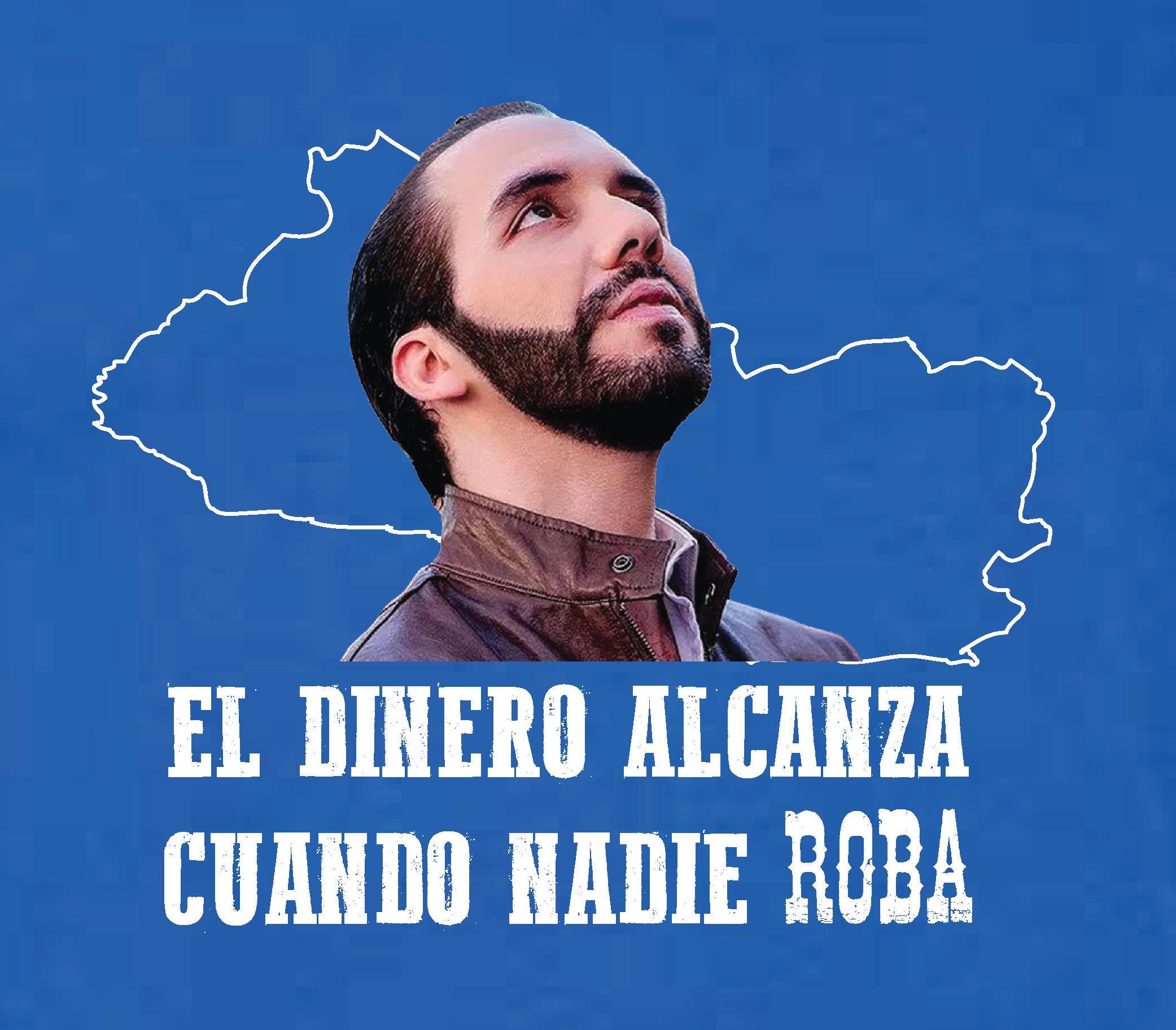Have you ever wondered why money seems to disappear faster than we earn it? The truth is, corruption, theft, and mismanagement often play a big role in this cycle. But what happens when no one steals? When no one robs the funds meant for the greater good, amazing things can happen. It’s not just about ethics—it’s about creating a system where everyone benefits. So let’s dive into this topic and explore how financial integrity can transform communities, businesses, and even nations.
Imagine a world where every dollar, euro, or peso is used for its intended purpose. No embezzlement, no hidden accounts, and no backdoor deals. Sounds like a dream, right? But it’s not impossible. By focusing on transparency, accountability, and trust, we can build a future where money lasts for those who truly need it.
Today, we’re going to unpack the concept of "when no one steals, the money lasts" and how it applies to personal finance, businesses, and governments. Whether you’re managing your household budget or running a multinational corporation, this principle can change the game. Let’s get started!
- Erome Sophie Rain The Rising Star In The Digital Age
- Ari Kytsya Onlyfans A Comprehensive Look Into Her Career And Success
Table of Contents
- What Does Financial Integrity Really Mean?
- Applying the Principle in Personal Finance
- How Businesses Benefit from Ethical Practices
- The Role of Governments in Preventing Theft
- Shocking Statistics on Corruption
- Practical Solutions to Stop the Cycle of Theft
- Building Trust Within Communities
- Global Efforts to Combat Corruption
- Technology’s Role in Ensuring Transparency
- Wrapping It Up: A Call to Action
What Does Financial Integrity Really Mean?
Financial integrity goes beyond just following the rules. It’s about being honest with yourself and others when it comes to money. When no one steals, the money lasts because every penny is accounted for and used wisely. This principle applies to individuals, organizations, and even countries.
In a world where scandals and financial crimes make headlines daily, financial integrity is more important than ever. It’s about creating a culture where transparency and accountability are the norm, not the exception. And trust me, this mindset shift can have a ripple effect that benefits everyone.
Why Integrity Matters
Here are a few reasons why financial integrity is crucial:
- Kaylee Hartung Eye A Comprehensive Look Into The Rising Stars Beauty
- Subhashree Sahu Nude Debunking Myths And Understanding The Impact On Personal Privacy
- It builds trust with stakeholders, whether they’re family members, employees, or taxpayers.
- It reduces waste and ensures resources are used efficiently.
- It fosters long-term relationships based on mutual respect and honesty.
Applying the Principle in Personal Finance
On a personal level, financial integrity means being honest about your spending habits and sticking to your budget. It’s about avoiding the temptation to dip into savings for unnecessary purchases or falsify expenses. When you practice financial integrity, you’ll find that your money lasts longer and you achieve your financial goals faster.
For example, let’s say you set aside $500 each month for emergencies. If you consistently dip into that fund for non-emergency expenses, you’re essentially stealing from your future self. But if you stick to the plan and only use the money when absolutely necessary, you’ll have a safety net when life throws you a curveball.
Tips for Practicing Personal Financial Integrity
- Create a realistic budget and stick to it.
- Be transparent with your partner or family about financial decisions.
- Avoid impulse purchases by setting a waiting period before buying big-ticket items.
How Businesses Benefit from Ethical Practices
Businesses that prioritize financial integrity tend to outperform their less ethical counterparts. Why? Because they build trust with customers, employees, and investors. When no one steals, the money lasts, and companies can reinvest in growth, innovation, and employee development.
A study by the Harvard Business Review found that companies with strong ethical cultures outperform those with weak ethical cultures by an average of 20%. This is because ethical companies attract top talent, retain loyal customers, and avoid costly legal battles.
Case Study: A Company That Gets It Right
Patagonia, the outdoor clothing company, is a great example of a business that prioritizes financial integrity. They’re transparent about their supply chain, pay fair wages, and donate 1% of sales to environmental causes. As a result, they’ve built a loyal customer base and become a leader in their industry.
The Role of Governments in Preventing Theft
Governments play a critical role in ensuring that public funds are used for their intended purposes. When no one steals, the money lasts, and governments can invest in infrastructure, education, and healthcare. However, corruption remains a significant challenge in many parts of the world.
According to Transparency International, corruption costs the global economy over $2 trillion annually. That’s money that could be used to improve lives, create jobs, and reduce poverty. Governments must take decisive action to combat corruption and promote transparency.
Steps Governments Can Take
- Implement strict anti-corruption laws and enforce them consistently.
- Encourage whistleblowers to report unethical behavior without fear of retaliation.
- Invest in technology to track public spending and ensure accountability.
Shocking Statistics on Corruption
The numbers don’t lie. Corruption is a global epidemic that affects people from all walks of life. Here are some eye-opening statistics:
- More than 65% of countries have made little to no progress in fighting corruption over the past decade.
- In some countries, up to 30% of public funds are lost to corruption each year.
- Bribery alone costs businesses and individuals over $1 trillion annually.
These numbers are staggering, but they also highlight the importance of taking action. When no one steals, the money lasts, and we can create a better future for everyone.
Practical Solutions to Stop the Cycle of Theft
So, what can we do to stop the cycle of theft and promote financial integrity? Here are a few practical solutions:
For Individuals
- Practice transparency in your financial dealings.
- Report unethical behavior when you see it.
- Support businesses and organizations that prioritize ethical practices.
For Businesses
- Implement strong internal controls to prevent fraud.
- Conduct regular audits to ensure compliance with ethical standards.
- Invest in employee training on ethical behavior and decision-making.
For Governments
- Strengthen anti-corruption laws and enforcement mechanisms.
- Promote transparency in public spending through open data initiatives.
- Engage citizens in the fight against corruption through education and awareness campaigns.
Building Trust Within Communities
Communities thrive when trust is at the core of every interaction. When no one steals, the money lasts, and resources are shared equitably. This creates a sense of security and belonging that benefits everyone.
Local initiatives, such as community banks and cooperatives, can play a key role in promoting financial integrity. These organizations are often more transparent and accountable than traditional banks, making them a great option for those seeking ethical financial services.
How You Can Get Involved
- Join or start a community group focused on financial literacy and integrity.
- Support local businesses that prioritize ethical practices.
- Participate in community events that promote transparency and accountability.
Global Efforts to Combat Corruption
The fight against corruption is a global effort that requires collaboration between governments, businesses, and civil society. Organizations like Transparency International and the United Nations are working tirelessly to promote transparency and accountability around the world.
One promising initiative is the Open Government Partnership, which brings together governments and civil society to promote transparency, empower citizens, and harness new technologies to build more open and accountable institutions.
How You Can Contribute
- Stay informed about global efforts to combat corruption.
- Support organizations working to promote transparency and accountability.
- Use your voice to advocate for ethical practices in your community and beyond.
Technology’s Role in Ensuring Transparency
Technology has the potential to revolutionize the way we promote financial integrity. Blockchain, artificial intelligence, and big data analytics are just a few examples of tools that can help prevent theft and ensure accountability.
For example, blockchain technology can be used to create transparent and immutable records of financial transactions. This makes it nearly impossible for anyone to steal or alter funds without being detected. Similarly, AI can be used to identify patterns of fraudulent behavior and alert authorities in real-time.
Challenges and Opportunities
While technology offers many opportunities to promote financial integrity, there are also challenges to consider. For example, not everyone has access to the latest technologies, which can create a digital divide. Additionally, some technologies, like blockchain, are still in their infancy and may not be suitable for all applications.
Wrapping It Up: A Call to Action
When no one steals, the money lasts. It’s a simple concept, but one that can have a profound impact on individuals, businesses, and governments. By prioritizing financial integrity, we can create a world where resources are used wisely and everyone has the opportunity to thrive.
So, what can you do to make a difference? Start by practicing financial integrity in your own life. Be transparent, accountable, and honest in all your financial dealings. Support businesses and organizations that prioritize ethical practices. And most importantly, use your voice to advocate for transparency and accountability in your community and beyond.
Remember, change starts with you. Together, we can build a brighter future where money lasts for those who truly need it. So, what are you waiting for? Let’s get to work!
- Ari Kytsya Leaked A Comprehensive Exploration Of The Controversy And Its Implications
- Exploring Movierulz Ullu A Comprehensive Guide To The Controversial Movie Streaming Platform


